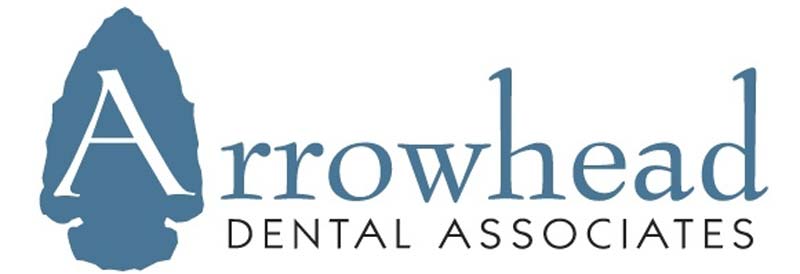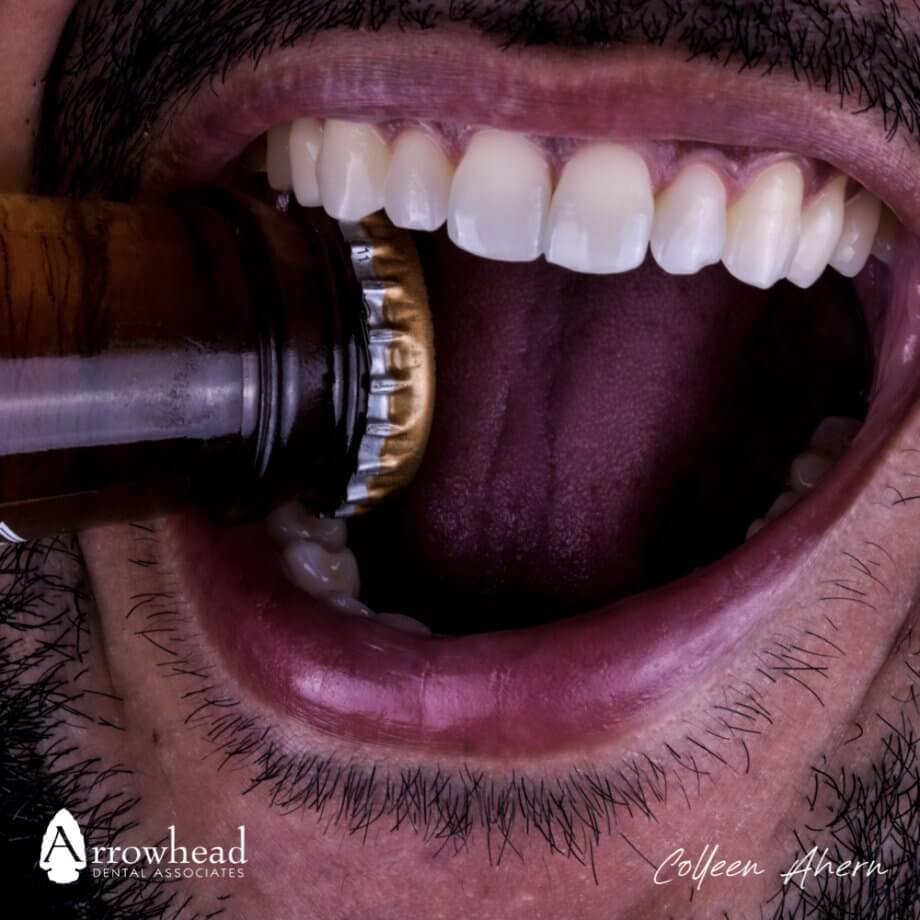There’s a lot to love about St. Patrick’s Day—the parades, the corned beef, and yes, even the green beer. Celebrating the day with a perfectly poured pint won’t have much of an impact on your overall oral health, but when you drink regularly, it can begin to affect your teeth and gums. While the risks are greatest for heavy drinkers, even drinking in moderation can cause oral health issues. Here’s what you should know.
Alcohol and Sugar
Alcohol and sugar go hand-in-hand. Many of the craft cocktails served at bars and restaurants are mixed with sugary syrups and sodas, and even a naturally sweet wine like port can pack in up to eight grams of sugar for a five-ounce serving—and most people drink more than five ounces.
Eating sugary foods isn’t good for your teeth, but sweet drinks are even worse. That’s because liquids completely coat all of your teeth in sugar, leaving no nook or cranny untouched. If your cocktail of choice also contains a squeeze of lemon, that’s a one-two punch for your dental health—the acid from the citrus erodes tooth enamel, while the sugar feeds the bacteria that cause tooth decay.
When you do choose to imbibe, it’s a good idea to brush afterwards if you’re at home or follow your cocktail or wine with a glass of water when you’re out to help rinse away some of the sugar.
Staining
We all know that red wine causes discoloration, but that’s not the only culprit when it comes to staining. The barley and malts used to brew darker beers can also turn your pearly whites into more of a dull gray over time.
The acid in alcohol wears away the tooth enamel; once the tooth enamel has been compromised, it’s easy for dark colored beverages like red wine and dark beers to cause dullness and stains. Again, the best way to protect against staining is to brush after you imbibe, but when this isn’t possible, sip on water between drinks. If your teeth are stained, consider in-office teeth whitening treatments for the best results.
Dry Mouth
Alcohol dries the mouth, which is bad news for oral health. Saliva plays an important role in keeping teeth healthy—it washes away plaque and bacteria throughout the day. As we’ve already discussed, alcohol contains sugar, acid, and tannins that work together to cause dental issues. Combine that with a lack of saliva to dilute and rinse away these compounds and the stage is set for even more tooth damage.
It’s important to stay hydrated when you drink alcohol by also drinking water. Chewing sugar-free gum or sucking on a sugar-free lozenge can help increase saliva production temporarily, but keeping hydrated is the best solution.
The Bottom Line
Alcohol in moderation can affect your teeth, but you can take simple steps to mitigate the damage, like brushing after you drink or rinsing with water. Patients with alcohol use disorder may see a more serious impact on their oral health; they are three times more likely to experience permanent tooth loss, and their risk of gum disease, tooth decay, and even oral cancer is increased as well.
Schedule an Appointment
If you’re concerned about the effect of alcohol on your teeth, contact us at 401-364-6300 to schedule an appointment with one of our doctors.
Photo Credit: Dr. Colleen Ahern

